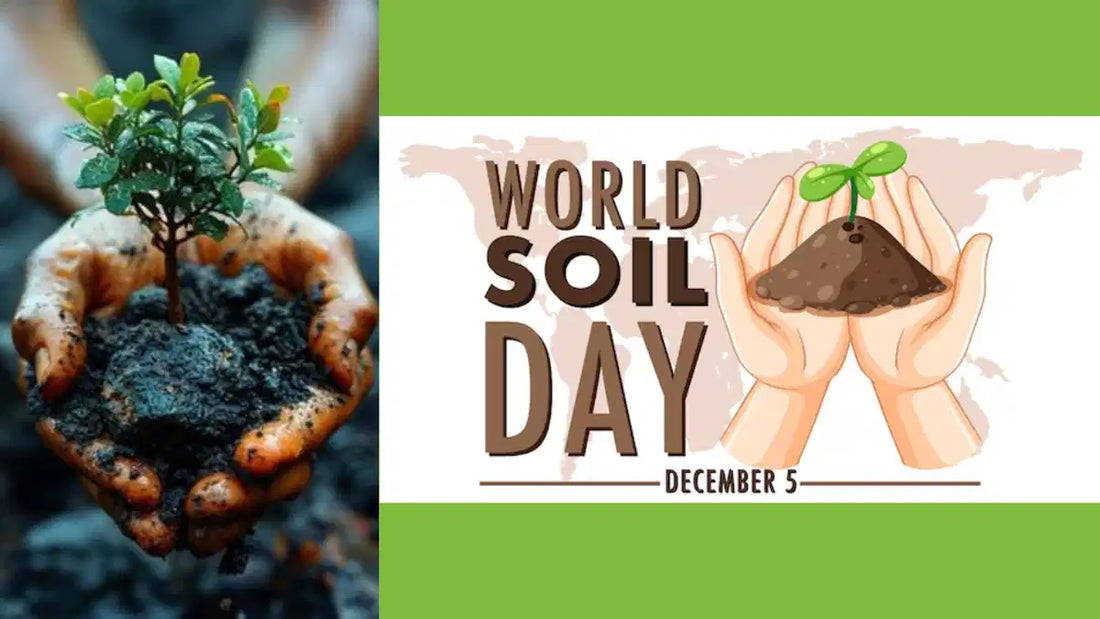World Soil Day, celebrated every year on December 5th, is a global initiative to raise awareness about the essential role of soil in sustaining life on Earth. In 2024, this day takes on even greater significance as we grapple with pressing environmental challenges like food insecurity, climate change, and biodiversity loss. This year’s theme, “Soil Health for a Resilient Future,” focuses on the vital connection between healthy soil and sustainable development.
Why World Soil Day Matters
Soil is often overlooked, but it is fundamental to life. This rich, living resource provides countless benefits:
- Food Production: Soil supports 95% of global food production by supplying nutrients to crops.
- Climate Mitigation: Acting as a carbon sink, soil helps mitigate the impacts of climate change by storing significant amounts of carbon.
- Biodiversity: A single teaspoon of soil can contain more microorganisms than there are people on Earth, making it a biodiversity hotspot.
- Water Management: Soil filters and stores water, reducing the risk of floods and ensuring clean water supplies.
Without healthy soil, ecosystems would collapse, and human survival would be at risk.
This Year’s Theme: “Soil Health for a Resilient Future”
The theme for World Soil Day 2024 emphasizes the importance of preserving soil health to ensure food security, environmental resilience, and sustainable livelihoods. The focus is on preventing soil degradation and promoting regenerative practices that restore soil vitality.
Challenges Facing Soil in 2024
Despite its critical importance, soil faces increasing threats:
- Degradation: Over one-third of global soil is already degraded due to deforestation, overgrazing, and unsustainable agriculture.
- Erosion: Wind and water erosion strip away fertile topsoil, reducing agricultural productivity.
- Urbanization: Expanding cities and infrastructure consume fertile land, leaving less for agriculture.
- Pollution: Industrial waste, excessive use of fertilizers, and improper waste disposal contaminate soil.
- Climate Change: Extreme weather events disrupt soil ecosystems and reduce soil quality.
What Can We Do?
Addressing soil challenges requires a collective effort:
- Sustainable Agriculture: Promote practices like crop rotation, agroforestry, and organic farming to maintain soil fertility.
- Composting: Transform organic waste into compost to enrich the soil naturally.
- Afforestation: Planting trees helps reduce soil erosion and improves soil structure.
- Education and Awareness: Share knowledge about soil conservation in schools, communities, and through social media campaigns.
- Policy Advocacy: Support policies that prioritize soil restoration and sustainable land use.
How You Can Celebrate World Soil Day 2024
- Get Involved Locally: Participate in local tree-planting events, clean-up drives, or soil conservation workshops.
- Start Composting: Turn kitchen scraps into compost to improve soil quality at home.
- Educate Others: Use social media or community events to raise awareness about soil conservation.
- Support Farmers: Choose sustainably grown produce and advocate for regenerative farming practices.

DID YOU KNOW ?
- One tablespoon of soil can contain more microbes than there are people on Earth.
- Soil stores more carbon than the atmosphere and all plant life combined.
- It takes 500 years to form just one inch of topsoil.
- Soil is a non-renewable resource; once lost, it cannot be replenished in a human lifetime.
- Healthy soil can filter and clean water, reducing the impact of pollutants.
- Over 25% of Earth's biodiversity lives in the soil.
- Earthworms can process up to 10 tons of soil per acre annually, enhancing fertility.
- Soil microbes produce antibiotics that have led to the discovery of life-saving medicines.
- Desert soil can support life due to unique microbial communities adapted to arid conditions.


